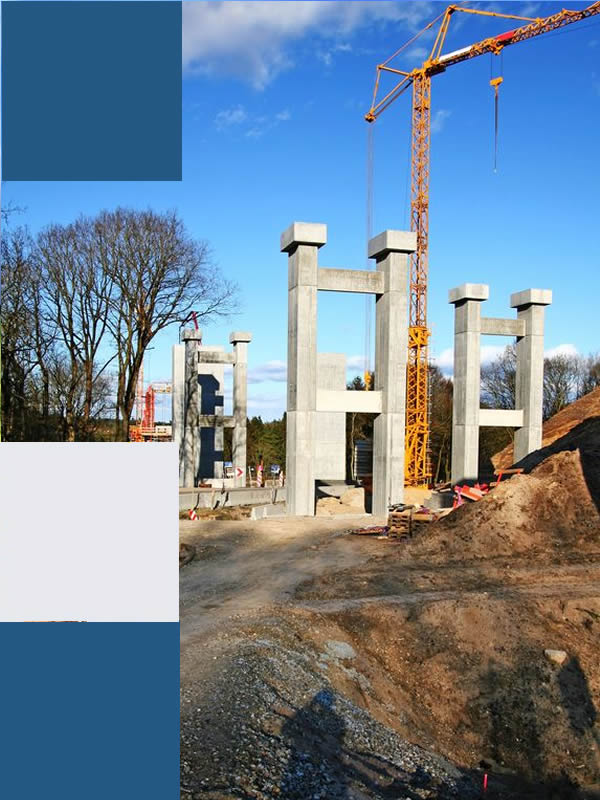BLUCHER LAW GROUP, PLLC
Eminent Domain
Condemnation Process

- Eminent Domain or Condemnation is the legal process that the government, or entity with governmental authority, may use to acquire private property for a public purpose.
- The power to take private property via eminent domain is granted to the government through the Federal and State Constitutions and through various statutes.
- The entity exercising the power of eminent domain is called the condemning authority. The property sought for condemnation is called a parcel.
- Typically, all government entities have the authority to take private property by eminent domain. Many government entities can share the power of eminent domain with semi-private entities such as utility companies.
- The condemning authority is usually represented by one or more attorneys and one or more representatives, an engineering department or consultants, real estate appraisers, planners, accountants, etc. A whole team of experts is assembled to design and proceed with the proposed project which includes the taking of your property.
- The first step is to understand your rights in an eminent domain case. The only way to discover your rights is to research the law yourself, or to employ experienced legal counsel to help you.
- In a typical eminent domain case, your legal fees and costs are paid by the condemning authority as part of full compensation to you, the property owner. In addition, your expert witnesses’ fees and court costs will be paid.
- Therefore, you have nothing to lose and everything to gain by seeking help with your case.
- Experts may assist you in negotiating a pre-suit settlement with the condemning authority if possible or, at least, evaluate the initial offer made by the condemning authority for the taking of your property.
- You should understand the impact the project will have on your property.
- What portion of your property is being taken?
- Why is it being taken?
- What is the purpose of the project?
- How will the project impact your remaining property/business?
- Your experts will help you understand and answer these questions.
- Discover whether or not the project can be modified to lessen or avoid the potential impact to your property. Are there any alternatives to the project that have not been fully considered?
- The condemning authority is required to make a good faith offer for the taking of your property. However, “good faith” does not always mean full compensation. You may:
- donate your property.
- voluntarily sell your property for the offered amount.
- proceed with the eminent domain case and seek additional compensation.
- Your experts can help you decide the best course of action.
- Is the “good faith” estimate a reasonable offer based upon an appropriate valuation of your property?
- Does it include the market value of your property and/or improvements have taken?
- Does it include the value of any damages to the remaining property?
- Does your business qualify for business damages under the Eminent Domain statutes and does the offer include any business damages?
- Does it include relocation expenses?
- Are there any engineering, drainage, access, or other issues that should be concerned about?
- Can your remaining property be “cured” by modifying your existing site?
- REMEMBER, that anything that you say to the condemning authority can be used against you later! You should have an attorney handle all negotiations with the condemning authority from the very beginning of the project.
- There is nothing to worry about. Being involved in an eminent domain lawsuit is often the best way to receive full compensation for the taking of your property. Remember, the expenses of the lawsuit are typically paid by the condemning authority.
- The condemning authority will file a Petition in eminent domain to take your property which is described as a parcel.
- You or your attorney will represent your best interests.
- Requests for additional information about the project.
- At this point, a judge will decide if the condemning authority can take your property.
- The condemning authority must prove three elements to take your property:
- The proposed project is intended for a public purpose
- The taking of your property is necessary to proceed with the project; and
- The deposit offered to you for your property is made in good faith based upon a valid appraisal
- Once the condemning authority takes your property and pays you the deposit your attorney, together with your experts, prepares all the necessary reports, studies, and findings and prepares a counteroffer to the condemning authority.
- Typical reports include:
- Real Estate Appraisal;
- Business Damage Report; and
- Engineering Report/Cure Cost Estimate.
- Once the condemning authority has had sufficient time to review your counteroffer, the settlement negotiations may begin.
- Often, a formal settlement conference, also known as a mediation conference, is held to settle your case. Most cases are settled either during or prior to mediation.
- Your attorney will explain the mediation process in more detail to you.
- If the case is not settled at a mediation, another mediation may be ordered or the case may proceed to trial.
- An eminent domain trial may lasts 2-5 days.
- It is a twelve-person jury trial held in the Circuit Court of the circuit (area) where the property in question is located.
- The condemning authority has the greatest burden to prove its case.
- The jury will decide the facts (monetary value) of the case and the judge will decide the law (whether or not a claim is appropriate).
- Once the jury determines the verdict, a final judgment is entered in the sum deemed appropriate.
- The money disbursed to you is yours to be spent in any way you choose. However, if you decide to appeal the case, you must not withdraw your award from the court.
- If you are not satisfied with the verdict and there are some legal grounds which may be further considered.
Attorney’s fees and expert costs (*)
- You are not responsible for attorney fees and expert witness costs.
- At the conclusion of your case, the law permits your attorney and your expert witnesses to claim their fees and expenses from the condemning authority.
- Attorney fees and expert costs are separately awarded from your own awards.
- Once all monies have been awarded, the case will be closed.
- At this point, it is very difficult to reopen an Eminent Domain case unless highly unusual circumstances occur. Therefore, it is essential that your rights are protected against the condemning authority throughout your case.
This information is not intended as a conclusive explanation of the Law of Eminent Domain in Florida. It is to be considered only a summary for clients or prospective clients of this law firm. If you have any questions concerning a specific real estate transaction, you should consult an attorney experienced in the practice of real estate law.


